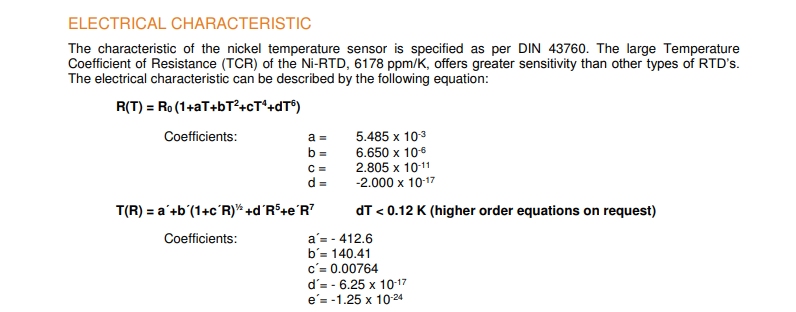I would like to build a circuit to read the signal from a thermopile temperature sensor which has build-in RTD temperature sensor for cold-junction compensation. The datasheet of the sensor is here. I need to know the resistance value of the built-in Ni-RTD at some particular temperature to build the circuit. I search the web to check how can I calculate the resistance value but all I could find is the formula for a platinum RTD. Could you guide me how to calculate the resistance value for a Ni-RTD?
Thank you very much.
[UPDATE]
I have used the Temperature Coeficient Resistance (TCR) to calculate the resistance at temperature T: Rt = R0[1+(TCR)T] However as I know the real temperature-resistance curve is not linear, is there a similar formula like the Callendar-Van Dusen equation to fix the curve?

